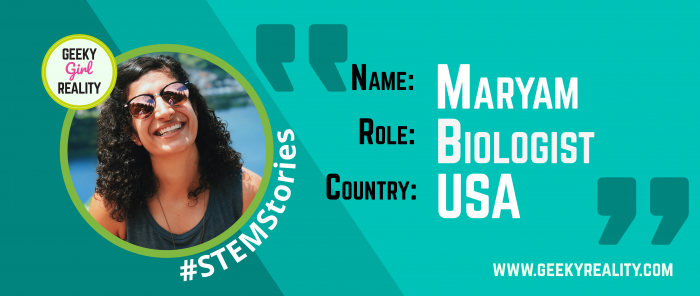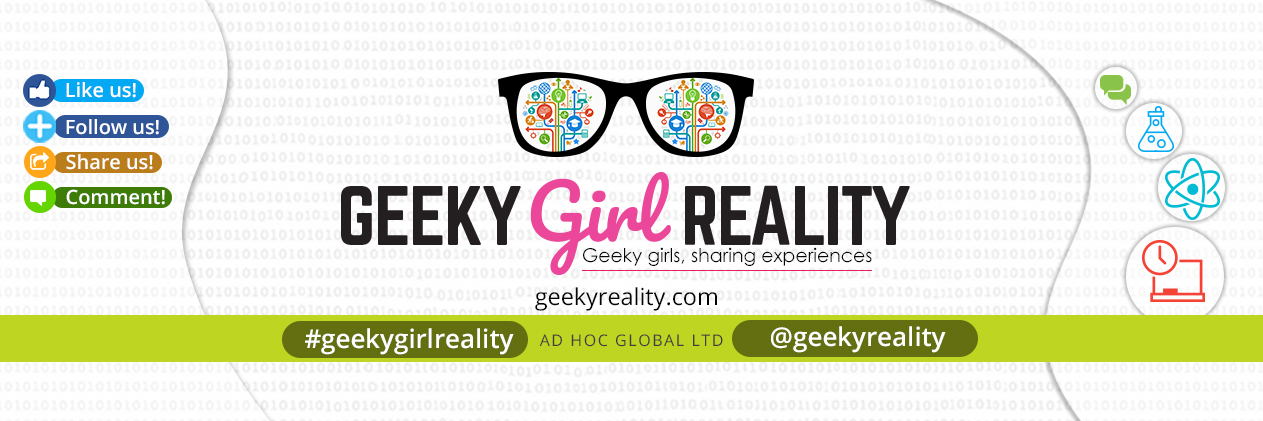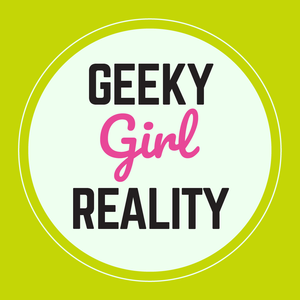 Two years ago, we spoke to Maryam, a Biologist by training who now works in science policy and science communication.
Two years ago, we spoke to Maryam, a Biologist by training who now works in science policy and science communication.
1. Introduce yourself, who are you, and what do you do?
My name is Maryam Zaringhalam and I’m a biologist by training who now works in science policy and science communication. I wear three broad hats: I’m an AAAS Science & Technology Policy Fellow, a Senior Producer for the Story Collider, and a leadership member of 500 Women Scientists. All of that work really boils down to answering this question: how can I help open up science to the public and make more folks feel like they belong and have some ownership over what it is scientists do?
2. How did you arrive at this career (or point in your life/work)? Was it always something you knew you wanted to do?
I entered grad school thinking I wanted to be a professor, leading my own lab. But pretty quickly into my graduate career, I realized I was more interested in bringing people into the experience of what it was like to do science, rather than doing science myself. So I started exploring careers outside of academia that were more public facing through a podcast I started with a few of my friends at school called Science Soapbox. We got to talk to a bunch of really impressive thinkers working at the intersection of science, policy, and advocacy, many of whom had done the science policy fellowship I now hold. I’m still figuring out exactly the direction I want my career to take, but as long as I’m learning, I’m happy!

3. What about your job makes you jump out of bed in the morning, especially on those cold, dark mornings?
I’m not sure if this is the healthiest thing, but probably Twitter! Scrolling through my timeline first thing in the morning, I see what so many amazing folks are up to that it makes me jump up, ready to join in.
4. What is your personal cure for stress or how do you raise your spirits in times of doubt? Can you share a story?
I struggle a lot with anxiety, and especially negative self talk. Something that really helps calm my thoughts is exercise; I’m a huge fan of group fitness classes and being outside. Doing something physically intensive makes me focus more on what my body is doing and gives me less of a chance to think—and especially to think bad thoughts. It’s kind of like a mental reset.
5. Who is your role model? If no one, any thoughts on this?
I don’t have a specific role model, but I’ll share some women who are doing phenomenal work I admire. Liz Neeley and Erin Barker lead the Story Collider team and constantly remind me that it’s possible to lead with compassion and be extremely effective. Then there are the women who have built powerful online communities: Kelly Ramirez-Donders and Jane Zelikova who launched 500 Women Scientists; Jedidah Isler founded Vanguard STEM; Giovanna Guerrero Medina and Mónica Feliú-Mójer direct Ciencia Puerto Rico; Stephani Page launched #BlackAndSTEM; Christine Liu coordinates The STEM Squad. And I also have to shout out the incredible Jess Wade, who creates a new Wikipedia page a day for women and underrepresented minorities in STEM—and whose boundless energy constantly inspires me.

6. What advice would you give to yourself if you could go back in time?
Failure is frequent and inevitable, and so learn to embrace and not feel ashamed of it as soon as possible. I struggled a lot with anxiety in high school and through college because I felt very much like I had to stick to a strict schedule and if things didn’t go exactly according to plan, I was a failure. But in science, we’re asking really big questions of the unknown, and so we fail all the time. My big wish for young scientists is that they feel comfortable talking about failure, so they can learn and grow from it. Talking about failure is how we’re better equipped to succeed!
Also, I wish that Angela Saini’s Inferior: How science got women wrong and the new research that’s correcting the record had existed when I was younger. I recommend everyone—and especially young women—read it since she systematically debunks every myth that falsely states that women are intrinsically inferior to men. Myth busting is a real power!
7. Top 3 tips for girls starting out in STEM?
Understand that you belong in science.
Grow a network that shares your values and love of science. I’ve found a great community and learned so much through social media. To find great folks, I recommend following @500womensci, @theSTEMSquad, @VanguardSTEM, @500queersci, @cienciaPR, and @realscientists.
Asking questions or seeking clarification makes you smart, not dumb. (It took me an eternity to learn this!)
8. How do you measure your success?
I wish I had a better answer for this, but it’s a combination of how proud I am of my work and some degree of external validation from mentors and peers. I’m still working on how to better define success for myself so I rely less on the input of others, but I’d be lying if I said it’s not something I look for—especially since my work is so outward facing.

9. Where can we find out more about your work?
You can find me on Twitter @webmz_ or see some of my work and appearances at webmz.nyc.
10. Are you social? Will you share your Twitter handle, or LinkedIn profile, or Facebook so that young women can connect with you?
I’m on Twitter and Instagram @webmz_. You can also connect with me on Linkedin, though please include a message!

